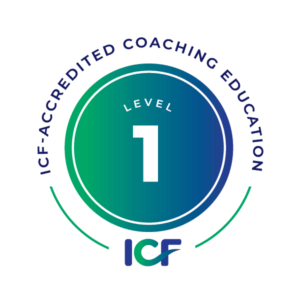Hello again, it’s Cherie! Throughout my years of coaching and mentoring, I’ve interacted with numerous aspiring coaches, eager to unlock their coaching potential. Drawing upon those experiences, and insights from other ICF Master Certified Coaches (MCCs), I’ve identified five critical skills that can significantly impact a coach’s effectiveness.
- Listening Actively: Active listening is foundational to effective coaching. It’s not just about hearing the spoken words; it’s about perceiving the emotions, the unsaid, the hesitations, and the excitement underlying those words. MCC Damian Goldvarg captures this principle succinctly, stating that active listening involves “following the client’s agenda and not getting lost in our own thoughts.” To practice active listening, try to stay present, avoid interrupting, and rephrase the client’s words to ensure mutual understanding. For example, after a client shares an experience, you could say, “So, what I hear you saying is…”, offering them a chance to correct any misunderstandings.
- Asking Powerful Questions: Powerful questions can unlock insights and stimulate introspection. A well-framed question, as MCC Marcia Reynolds maintains, can be the seed from which profound understanding and self-awareness grow. Questions that start with “what” or “how” instead of “why” tend to be less confrontational and more open-ended, providing room for expansive thinking. For instance, instead of asking “Why did you choose that approach?” you could query, “What factors influenced your choice of approach?”.
- Building Trust: Trust is the bedrock of a fruitful coaching relationship. As MCC Jean-François Cousin emphasizes, “Trust enables the coach and the client to work together in the most effective and efficient way.” To build trust, establish confidentiality early on, show empathy, and be reliable. For example, always be punctual for your coaching sessions and follow up on any commitments you make to your clients.
- Exhibiting Emotional Intelligence (EI): EI, as defined by MCC Teri-E Belf, is the “capacity to be aware of, control, and express one’s emotions, and to handle interpersonal relationships judiciously and empathetically.” A coach with high emotional intelligence can accurately perceive a client’s emotional state, respond empathetically, and guide the conversation in a productive direction. For instance, if a client shows signs of frustration or distress, a coach could acknowledge these feelings and suggest a break or a shift in topic if needed.
- Remaining Non-Judgmental: As coaches, we must foster an environment where clients can freely express their thoughts and feelings without fear of judgment. An unbiased and open mindset welcomes authenticity, fostering deeper insights and enabling genuine progress. For example, if a client shares a decision you personally disagree with, it’s crucial to respond neutrally, emphasizing their autonomy in their choices.
These are key skills that, with time, patience, and practice, can be honed and nurtured, transforming good coaches into great ones.
For those ready to embark on this journey, Tandem Coaching Academy offers ICF PCC and ACC Coach Training programs. These programs provide a robust ground to learn and refine these key skills.
However, always remember that each person’s coaching journey is unique. These tips are stepping stones on a diverse path filled with its own challenges and rewards.
I’ll leave you with this question: Which of these five skills resonates most deeply with your own experiences or aspirations as a coach? I eagerly look forward to hearing your thoughts and perspectives.
Until next time, Cherie 💚


















